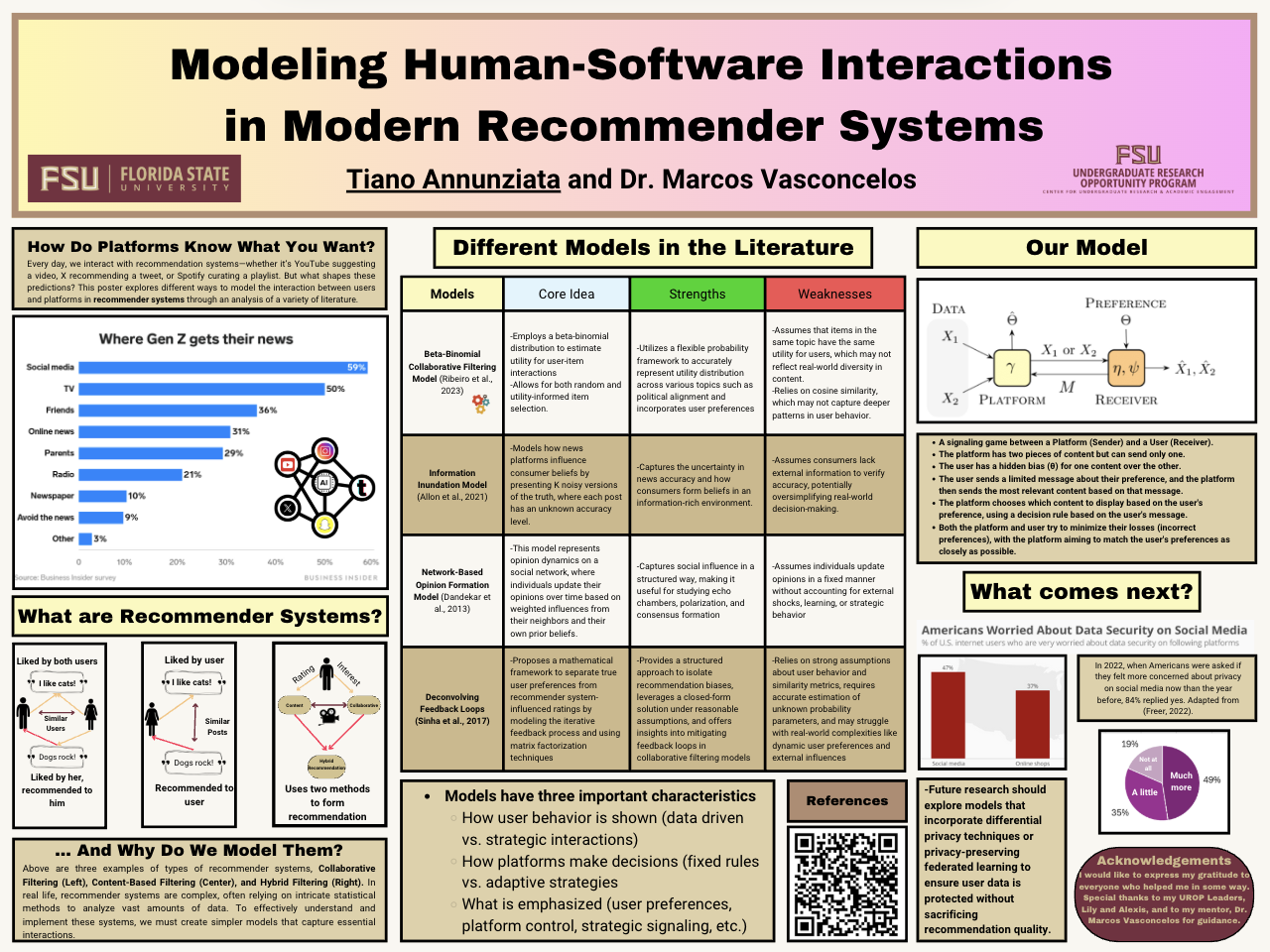Research Symposium
25th annual Undergraduate Research Symposium, April 1, 2025
Tiano Annunziata Poster Session 1: 9:30 am - 10:30 am/ Poster #261

BIO
I am a second-year Applied Mathematics major with an interest in the optimization of complex real-life system through mathematical tools. I lived in Virginia my whole life, and I moved to Florida for school. I like to play soccer, watch and rate films, go hiking and camping, and working out. In the future, I hope to work in operations research and logistical systems. I am learning Italian, with a goal of working in Italy.
Modeling Human-Software Interactions in Modern Recommender Systems
Authors: Tiano Annunziata, Dr. Marcos M. VasconcelosStudent Major: Applied Mathematics
Mentor: Dr. Marcos M. Vasconcelos
Mentor's Department: Dept. of Electrical and Computer Engineering Mentor's College: FAMU-FSU College of Engineering Co-Presenters:
Abstract
Today, the spread of information is facilitated primarily through social media platforms, and the heart of these platforms are what we call "the Algorithm," recommendation systems that mediate the interaction between users and the platform. At the core of this system, platforms curate content from a set of sources, using complex machine learning models to estimate individual user preferences in order to maximize user engagement, while the users aim to maximize their utility, leading to potential misalignments between the two objectives. Much research has been done to construct models of recommender systems that quantify and represent this misalignment, allowing us to observe complex user/platform behaviors. In this project, we conduct a literature review of existing models of recommender systems, highlighting key insights, strengths, and limitations of different model methodologies, while we also introduce a new game-theoretic model that incorporates communication constraints, capturing how platforms optimize content distribution under asymmetric information conditions.
Keywords: Recommender systems, algorithm, social media, communication networks, optimization, game theory

